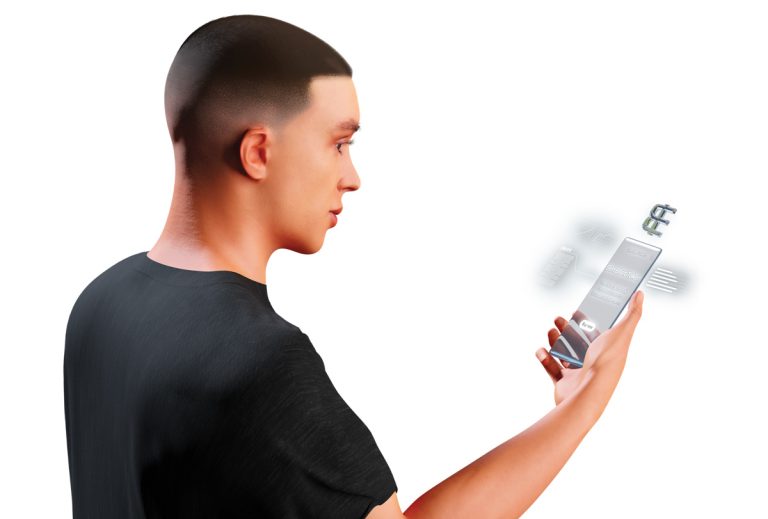The new cryptocurrency that could change how we trade art
Artists are starting to lean towards crypto-powered fundraising, with Parisian artist Ben Elliot taking the first leap with the Ben Elliot Token (BET), which is to be launched in 2021 on the Stellar (XLM) blockchain network. The tokens are directly linked to his career evolution, meaning that the value of the tokens will presumably fluctuate according to the value of Elliot’s work. According to Elliot’s website, the BET will allow investors “to profit by trading and selling the coin in the form of virtual artworks.” Could cryptocurrency be the future of art dealership?
Elliot stated that “BET is a tangible asset that can be directly converted into artwork. As the internet and social network rise, money, business, creativity and the ways one manages them are shifting. Creatives and influencers monetising their personal content and data have now become more valuable than some traditional industries.”
First, let’s go into what a cryptocurrency actually is. To put it simply, a cryptocurrency is a digital currency. To define it, the first part of the word ‘crypto’ means ‘hidden’ or ‘secret’, which reflects the secure technology that is used to keep track of ownership and payments between users.
Cryptocurrencies exist electronically and use a peer-to-peer system—or blockchain technology, which enables the existence of cryptocurrency. There is no central bank or government to manage it. Initially, blockchain technology was invented for the best-known cryptocurrency, the Bitcoin. Ripple, Litecoin and Ethereum are a few other different types of crypto assets. If you’re looking to find out more about crypto exchanges, I recommend you check findcryptoexchange.com.
So why has Elliot decided to make this move? The artist has been known to explore new systems of emerging trends, creation of values, artificial intelligence, robotics, virtual reality, decentralised internet and, in general, innovation. He often partners with companies from contemporary industries such as tech, advanced lifestyles and entertainment to highlight the concepts and values that they carry. But the context of his work primarily focuses on blurring the lines of reality.
In his extended and ongoing series titled Unreleased Selfies, Elliot released pictures of himself that were never published on social networks printed to the size of a 5’5 smart screen. He says that “They are selfies that I originally took for my Instagram. I never published them because they were not good enough or because they were outtakes of other selfies. It is a kind of behind-the-scenes of my posts.”
Elliot also reflected on his Resin Series, and stated that it started according to two millennial principles: dematerialization; and transactional communication. As observed by NumeroArt’s editor-in-chief, “The truth of reality no longer opposes the fakeness of the virtual, the private sphere is no longer a protected domain,” which directly links to Elliot’s venturing into the crypto-realm.
In an interview with FAD magazine, Elliot was asked ‘what’s real?’. His response being, “A human concept that is slowly losing its meaning.” Art has always lived with a parallel importance to human nature, one being the reason to why art is created, and bought—art as an expression of feeling, the other being for investment purposes—art usually, if marketed and looked after properly, gains value over time. There are multiple reasons why people buy art, of course. But Elliot’s reasoning behind a realness that is losing its meaning, truly reflects our concept of value today.
Something as abstract and conceptual as the reason for art mirrors the understanding of the volatile nature that cryptocurrencies possess. It also introduces the reasoning behind Elliot’s need to launch BET, without the banks or government in control of the value of a piece of art—the artwork’s value lies in the hands of the highest bidder. Instead it will be a collective encrypted database and the creative platform could, as Elliot hopes, open up opportunities for individuals to access these online exhibition or viewing rooms, which are currently limited.
As we know, art is deemed to be broad by character, so BET plans to host physical events called the ‘new summit’, where investors will be able to discuss the trends of the internet market as a whole, the new summit will consist of exhibitions, talks, screenings featuring cultural innovations, also artificial intelligence and robots.
In his words, Elliot claims that BET will join the forces of technology and creativity through cryptocurrency, blockchain and art to make the smartest and most secure artwork ever. We might all be collecting tokens in the form of art next year, but let’s see if we can trust the enigmatic world of electronic money first.





